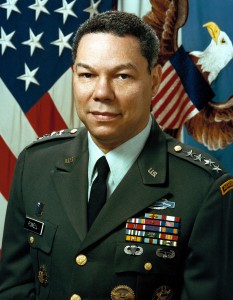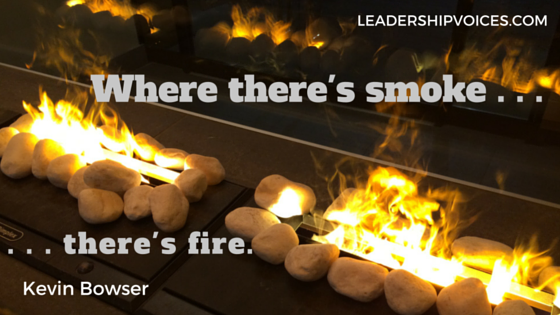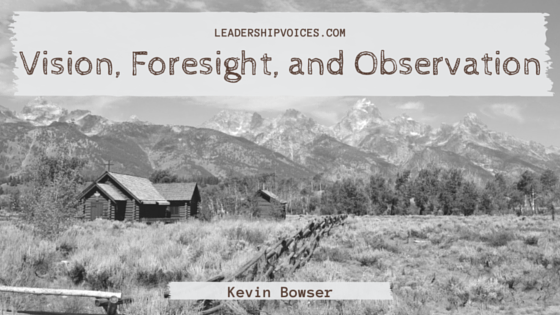Kevin Bowser
Leader -|- Follower -|- Guide
I am a House Cut
A unique perspective on Leadership
by
This may be a little out of ordinary for LeadershipVoices.com, but a thought came to me recently. Now that alone is not necessarily “blogworthy”. But, I am going to try to make a leadership application from that thought.
Several years ago I gave up on dealing with my hair. What hair that I had left was not, nor had ever been, very cooperative. It tended to want to go wherever it wanted despite the lotions and potions that I piled on it to keep it down. So, one day, I asked my barber to make a suggestion. She suggested that I just go to a “#1 or #2” razor guard, cut it really short and be done with it. I did it and I loved it.
You can’t imagine the freedom came with that decision. I no longer had to wait in line for my particular barber that remembered how to cut my hair. I now was no longer what barbers call a ”Chair Cut”. I was now a ”House Cut”. All I needed to tell whoever cut my hair was “#1” and they would take it from there.
Simple.
Easy.
In fact, it was liberating.
Now for the application to leadership.
Click here to read the rest of the article »
Sincere
Sincerely Wrong
by
I have become a huge baseball fan over the past few years. I won’t go into why or how I became a baseball fan so late in life. But, trust me. It’s a good story.
I saw this quote one night a few years ago while skimming the sports news. Apparently, Yadier Molina, the catcher for the St. Louis Cardinals was thrown out for arguing balls and strikes with the home plate umpire Paul Schreiber on that particular night. Now according to the rules of baseball (both the written AND the unwritten ones) you can maybe mutter something under your breath to the umpire. But everyone knows you are going to get tossed out of the game if you argue balls and strikes. And both Molina and his manager Tony La Russa got tossed out of the game that night for doing just that.
But that is not the point of this post. What really struck me was the comments by his manager, Tony La Russa. La Russa knows Yadier Molina well and Molina has a reputation for being competitive, but good to work with from the home plate umpire’s perspective. Here is what La Russa said to the media following the game.
“You try to coach emotion in players, and that’s what competition is about,” La Russa said. “That’s not his style, so evidently he was sincere. And if he’s sincere, what can you say about it?”
Well, I can say a whole lot about it Mr. La Russa!
But what is the Leadership Lesson?
Click here to read the rest of the article »
Where there’s smoke . . .
. . . there's fire.
by
We have all heard the maxim — “Where there’s smoke, there’s fire”. But I say that I no longer believe that based upon something that I saw recently while on a business trip to Calgary.
I was looking for a place to eat one night and happened upon a place that I have frequented before. But, because there was a slight chill in the air, there appeared to be a cozy fire burning in the entryway of the restaurant. Just look at the title graphic for this post and you will see the photograph of what I saw.
I could see little wisps of “smoke” rising from the “fire”. It was only after I got to within just a few feet of the “flames” was I able to tell that neither the smoke nor the fire was real. Instead the effect was achieved through the use of ultrasonic technology to create something resembling smoke that was actually water vapor and then adding a flickering flame colored light to create a very realistic smoke and fire effect. I must admit it was very cool.
So what is the Leadership Lesson here?
Click here to read the rest of the article »
Weak Leaders
And the Relationship to Weak Followers
by
Weak leaders naturally attract weak followers. That is my hypothesis. I am not sure if there has ever been an academic or scientific study to prove that hypothesis or not. But, it is clearly an observation that I have made over many years of observational study.
Why do you suppose that would be the case? And who is really attracted to who? Is it really that it is the weak leader that is attracted to weak followers?
My fear is that it may in reality be the weak leader that is attracted to weak followers. For it is in that setting that they can operate without much fear of any challenges to their leadership or true accountability for their actions.
I have not yet met a leader who would admit to being a weak leader. Often they will admit that they are not as strong as they would like to be. But they usually don’t admit to their weakness in this area.
According to Les McKeown of Inc. Magazine, “The problem comes when a weak leader masquerades as a strong leader. Outwardly, they appear effective, dependable, on top of things. But look closely at what they believe to be strong leadership and what you see is, in fact, a set of dangerous, destructive behaviors. Behaviors which will eventually strangle the organization.”
McKeown goes on to provide some typical behaviors of weak (or in his words, “ineffective”) leaders. I will not elaborate or comment on all of them. But I would offer my thoughts on how weak leaders interact with their followers.
Click here to read the rest of the article »
Emotional Intelligence
Is it really “All that”?
by
Let the record clearly state that I firmly believe that Emotional Intelligence is “All that” and even more. In fact, I have written much on this topic and I remain committed to bringing EI coaching and consulting to those organizations and individuals that want to maximize their potential across all facets of life.
Leaders with high Emotional Intelligence are valued across the board by their organizations. But does that mean that there are no drawbacks or points to ponder where EI is concerned? No, I believe that there are some things to heed in the midst of embracing the benefits.
Many Times It Seems “Feelings-Based”
Effective leaders with high levels of emotional intelligence also often have to achieve a higher level of self-control over their emotions than typical employees. As important as the “gut feeling” that is discussed in much of the commentary on Daniel Goleman’s work is to the basics of EI study, one cannot ignore the connection between the “gut” and the “brain”. In many situations where most employees may get by with a feelings-first approach, leaders must do what’s right rather than what feels good at the moment or is the popular decision to make.
Click here to read the rest of the article »
Vision, Foresight, and Observation
Are vision and leadership synonymous?
by
Are “vision” and “foresight” the same thing? Or, more importantly, are they synonymous with “leadership”? Let me say quickly that I do not believe that they are synonymous. Consider this as a follow up to last weeks article about a quote that has been attributed to Henry Ford. In that article I called him a “foresighted innovator.” I equated foresighted innovation with being a leader. So, does that mean that Henry Ford was therefore a man of vision? Does that mean that he was a leader by many of the other accepted leadership definitions?
I find myself reflecting this week on a Bible passage that you may hear occasionally when some other types of leaders wish to address their followers. Personally, I have seen it used when church leaders want to speak to the issue of visionary leadership. Here is that often misquoted (and occasionally misused) scripture.
“Where there is no vision, the people perish”.
It is found in the Old Testament in Proverbs 29:18. It is used many times from a church pulpit to exhort us to catch the vision that a pastor has seen and to encourage us onward to the destination that has been seen in the vision.
Having vision, communicating a vision, and catching a vision are all vital skills for leaders and followers alike. But I submit to you that there is a BIG difference between being a visionary person and being a leader.
Let me explain my thoughts this way.
Click here to read the rest of the article »
Faster Horses
Are you a Foresighted Innovator?
by
There is a great quote from automobile industrialist, Henry Ford, that has been on my mind lately. It deals with a leadership trait that is as in short supply today as it was nearly 100 years ago.
If I would have asked people what they wanted, they would have said “faster horses” — Henry Ford
What a great quote! And what a great insight into a key leadership trait for you and me today.
What is the leadership trait?
The trait that I want to focus on today is being a Foresighted Innovator. The business community is all about collaboration these days. And I believe in collaboration. I really do! But, sometimes, a true leader, an innovator like Henry Ford, is able to see far beyond what those around him see. He doesn’t need a “focus group” to help him understand the market. He has the foresight to see beyond what is and is able to see what needs to be and what can be. In reality, there was no one to collaborate with Henry Ford because Ford was able to see things that others simply could not.
Click here to read the rest of the article »
The Wit of the Staircase
And the Art of NOT Always Getting the Last Word
by
The French seem to always be in possession of le mot juste (the right word). They indeed have a phrase for the moment following a tense or embarrassing incident that happens to those who are not gifted with a quick wit:
“l’esprit de l’escalier”
Translated, it means “the wit of the staircase”. Or, more clearly as it relates to a situation where you only come up with a witty response to a verbal challenge or situation after you’ve turned on your heel and left the scene.
According to Wikipedia, it is the name for the phenomenon that comes from French philosopher Denis Diderot’s description of such an occurrence. At some point during a dinner at the home of statesman Jacques Necker, according to history, a remark was made to Diderot which left him speechless at the time. In French he says, “l’homme sensible, comme moi, tout entier à ce qu’on lui objecte, perd la tête et ne se retrouve qu’au bas de l’escalier.”
Translated into English it means, “a sensitive man, such as myself, overwhelmed by the argument leveled against him, becomes confused and can only think clearly again [when he reaches] the bottom of the stairs”.
I can relate to that feeling, can’t you?
In this case, “the bottom of the stairs” refers only to the architecture of the kind of hôtel particulier or stately home to which Diderot had been invited. Obviously the reception rooms were located on an upper level or at least one floor above the ground floor. Therefore, to have reached the bottom of the stairs means definitively to have left the gathering and left the awkward or embarrassing exchange that had just occurred.
But I think that there is much more to this than just an architectural consideration.
Click here to read the rest of the article »
Are You Moving Fast Enough?
Wit and wisdom from Will Rogers
by
The great social commentator of the 1920s and 30s, Will Rogers was a man of great insights. Some of his thoughts on the human condition are on one level very humorous. And on another level they are incredibly deep for a guy who dropped out of school in the 10th grade.
But, he is credited with a quote that I am finding to be very descriptive of some of the things that I see around me these days. Will Rogers said:
Even if you’re on the right track, you’ll get run over if you just sit there.
I see so many folks in leadership that are truly on the right track. They are not fundamentally heading in the wrong direction. Actually, many time they are not heading in much of a direction. They seem to feel quite confident and assured that just being on the right track is sufficient. It is not.
Let’s assume for a moment that you have stumbled upon the “right track.” How you got there may be a mystery. But your instincts tell you that you are indeed on the right track.
What’s next? Where do you go from here?
Just sitting there is not a long term solution. Will Rogers tells us that if we just sit there, someone will run over us. But, who is going to run over us? Consider the following potential candidates to run over us:
Click here to read the rest of the article »











